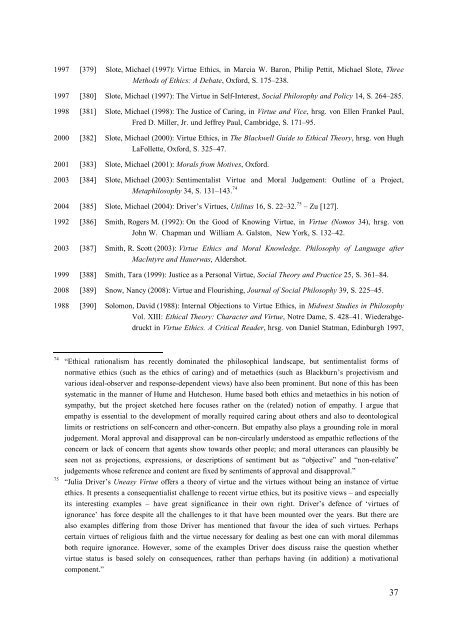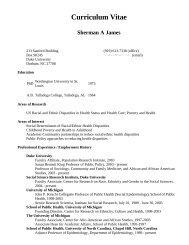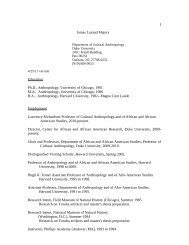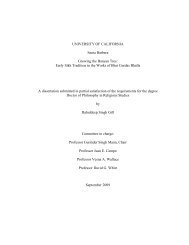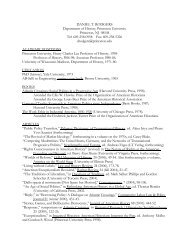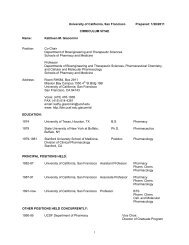Literatur zur Tugendethik Bibliography on Virtue ... - Academic Room
Literatur zur Tugendethik Bibliography on Virtue ... - Academic Room
Literatur zur Tugendethik Bibliography on Virtue ... - Academic Room
- No tags were found...
You also want an ePaper? Increase the reach of your titles
YUMPU automatically turns print PDFs into web optimized ePapers that Google loves.
1997 [379] Slote, Michael (1997): <strong>Virtue</strong> Ethics, in Marcia W. Bar<strong>on</strong>, Philip Pettit, Michael Slote, ThreeMethods of Ethics: A Debate, Oxford, S. 175–238.1997 [380] Slote, Michael (1997): The <strong>Virtue</strong> in Self-Interest, Social Philosophy and Policy 14, S. 264–285.1998 [381] Slote, Michael (1998): The Justice of Caring, in <strong>Virtue</strong> and Vice, hrsg. v<strong>on</strong> Ellen Frankel Paul,Fred D. Miller, Jr. und Jeffrey Paul, Cambridge, S. 171–95.2000 [382] Slote, Michael (2000): <strong>Virtue</strong> Ethics, in The Blackwell Guide to Ethical Theory, hrsg. v<strong>on</strong> HughLaFollette, Oxford, S. 325–47.2001 [383] Slote, Michael (2001): Morals from Motives, Oxford.2003 [384] Slote, Michael (2003): Sentimentalist <strong>Virtue</strong> and Moral Judgement: Outline of a Project,Metaphilosophy 34, S. 131–143. 742004 [385] Slote, Michael (2004): Driver’s <strong>Virtue</strong>s, Utilitas 16, S. 22–32. 75 – Zu [127].1992 [386] Smith, Rogers M. (1992): On the Good of Knowing <strong>Virtue</strong>, in <strong>Virtue</strong> (Nomos 34), hrsg. v<strong>on</strong>John W. Chapman und William A. Galst<strong>on</strong>, New York, S. 132–42.2003 [387] Smith, R. Scott (2003): <strong>Virtue</strong> Ethics and Moral Knowledge. Philosophy of Language afterMacIntyre and Hauerwas, Aldershot.1999 [388] Smith, Tara (1999): Justice as a Pers<strong>on</strong>al <strong>Virtue</strong>, Social Theory and Practice 25, S. 361–84.2008 [389] Snow, Nancy (2008): <strong>Virtue</strong> and Flourishing, Journal of Social Philosophy 39, S. 225–45.1988 [390] Solom<strong>on</strong>, David (1988): Internal Objecti<strong>on</strong>s to <strong>Virtue</strong> Ethics, in Midwest Studies in PhilosophyVol. XIII: Ethical Theory: Character and <strong>Virtue</strong>, Notre Dame, S. 428–41. Wiederabgedrucktin <strong>Virtue</strong> Ethics. A Critical Reader, hrsg. v<strong>on</strong> Daniel Statman, Edinburgh 1997,7475“Ethical rati<strong>on</strong>alism has recently dominated the philosophical landscape, but sentimentalist forms ofnormative ethics (such as the ethics of caring) and of metaethics (such as Blackburn’s projectivism andvarious ideal-observer and resp<strong>on</strong>se-dependent views) have also been prominent. But n<strong>on</strong>e of this has beensystematic in the manner of Hume and Hutches<strong>on</strong>. Hume based both ethics and metaethics in his noti<strong>on</strong> ofsympathy, but the project sketched here focuses rather <strong>on</strong> the (related) noti<strong>on</strong> of empathy. I argue thatempathy is essential to the development of morally required caring about others and also to de<strong>on</strong>tologicallimits or restricti<strong>on</strong>s <strong>on</strong> self-c<strong>on</strong>cern and other-c<strong>on</strong>cern. But empathy also plays a grounding role in moraljudgement. Moral approval and disapproval can be n<strong>on</strong>-circularly understood as empathic reflecti<strong>on</strong>s of thec<strong>on</strong>cern or lack of c<strong>on</strong>cern that agents show towards other people; and moral utterances can plausibly beseen not as projecti<strong>on</strong>s, expressi<strong>on</strong>s, or descripti<strong>on</strong>s of sentiment but as “objective” and “n<strong>on</strong>-relative”judgements whose reference and c<strong>on</strong>tent are fixed by sentiments of approval and disapproval.”“Julia Driver’s Uneasy <strong>Virtue</strong> offers a theory of virtue and the virtues without being an instance of virtueethics. It presents a c<strong>on</strong>sequentialist challenge to recent virtue ethics, but its positive views – and especiallyits interesting examples – have great significance in their own right. Driver’s defence of ‘virtues ofignorance’ has force despite all the challenges to it that have been mounted over the years. But there arealso examples differing from those Driver has menti<strong>on</strong>ed that favour the idea of such virtues. Perhapscertain virtues of religious faith and the virtue necessary for dealing as best <strong>on</strong>e can with moral dilemmasboth require ignorance. However, some of the examples Driver does discuss raise the questi<strong>on</strong> whethervirtue status is based solely <strong>on</strong> c<strong>on</strong>sequences, rather than perhaps having (in additi<strong>on</strong>) a motivati<strong>on</strong>alcomp<strong>on</strong>ent.”37


